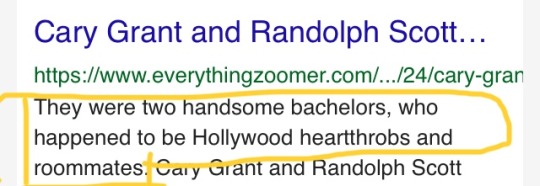I get upset easily. Then I rant about it
Last active 4 hours ago
Don't wanna be here? Send us removal request.
Text
Hiding government and public services to reduce how much they're used and "prove" that they're unneeded is a tried and true Republican technique. It's not a conspiracy, these things are deliberately made difficult to access to discourage people from using them because "more use = more funding" and "less use = less funding" is how public service funding is generally decided.
Musk outright lying about "deleting" a whole IRS program for low income tax filing is just a progression of common Republican tactics. Don't fall for it.
828 notes
·
View notes
Text
for the non-Americans who are very confused right now:
Everyone hates The Chiefs this year because it's quarterback Patrick Mahomes is low-key MAGA and the orange pestilence is in attendance in the game. And the racist ass "chop" their fans do. and that Traves Kelce said it would be "an honor" to host the orange pestilence at the game.
and now they're fucking losing and Taylor is going to DUMP him and join Kendrick in writing an absolutely devastating breakup anthem.
29K notes
·
View notes
Text
I heard it's Superb Owl Sunday so I have prepared some superb owls for you.

The barn owl is the most widespread species of owl, living on every continent except Antarctica. Their faces are shaped like a disk to help their hearing, giving them some of the best hearing of any owl. They mostly hunt by sound.

Snowy owls are the largest arctic predatory birds, They are born with black feathers and get whiter as they age. Females usually have more dark feathers than males.


Eastern screech owls have a few feather variants that make them look like completely different species.

The southern white-faced owl can increase its metabolic rate during winter to compensate for the cold and lack of food. They lay their eggs in nests built and abandoned by other birds.

The great grey owl is the largest owl by length, but a lot of that is feathers and they're actually very light for their size. Their hearing is good enough to hear rodents burrowing through snow and they can break through hard-packed snow to catch prey.

Blakiston's fish owl is the largest owl by mass and eats mostly fish. Despite the name, they may be more closely related to eagle owls than fish owls.

The elf owl is the smallest owl species, barely larger than a sparrow. They hunt bugs and play dead when caught. They like to live in holes in saguaro cacti.

Burrowing owls live in underground burrows. While they can dig, they mostly take over burrows from other animals. Farmers killing prairie dogs has severely reduced burrowing owl populations. They decorate their burrows with feces to attract bugs to eat.
The barking owl is called that because
youtube
Its nice to have a day to appreciate superb owls. Feel free to spread the love by reblogging with some more owl facts.
7K notes
·
View notes
Text
dc medieval au where instead of being a car guy Tim’s really obsessed with horses
571 notes
·
View notes
Text
I think the scariest part about Batman is the loyalty he inspires. Like this motherfucker has an army of children who might at any given time hate his guts, but are still 100% willing to throw hands for him if Bruce needs them to. And then there’s the Justice League, who also at any given time might hate his guts or find him insanely irritating and/or weird, but will also fall in line and listen to his plans if the need arises. And that’s like the most intense form of power someone can wield—voluntary obedience from people physically more capable than them.
2K notes
·
View notes
Text
Bruce truly hates magic with every pump and beat of his heart.
What kinda curse is Slang, anyway?
“This is the best day of my life.”
“You thought you ate that.” Bruce physically feels a full body shiver, charged with nausea and cringe. “This is level 10 cringe. Can’t have shit in Gotham.”
Dick is his earth bound angel, but he laughs like a demon at him, holding onto Jason for support, pledging his eternal loyalty to Zatana and her pettiness.
—
“Hey, old bat, hook me up with an adrenaline shot.”
What he wants to say is Jay, do not try and fight with 6 bullets in your stomach.
What comes out instead, through Bruce’s grit teeth and intense, fierce glaring, “Not you trying to go back to your corpse era. See how I only took 2 shots? Very demure. Very mindful.”
Jason passes out from blood loss, but mostly laughter.
—
“Chat, is this real?”
Stephanie barely bites back a full belly cackle. “I think he just asked us if we copied.”
“I wish I was Jason, 15.”
—
“This is not a slay environment. Killing is flop behavior.” He keeps his eyes shut and buries his face in his hands. Trying to convince Damian not to stab someone doesn’t seem to work.
Damian gives him a pat like he’s a pitiful cat. “I’ll only stab the non lethal areas.”
“God, I wish that were me.”
12K notes
·
View notes
Text
on endlings, and despair
Hey, y'all. It's...been a rough couple of weeks. So, I thought--better to light a single candle, right?
If you're familiar with wildlife conservation success stories, then you're likely also familiar with their exact polar opposite. The Northern White Rhino. Conservation's poster child for despair. Our greatest and most high-profile utter failure. We slaughtered them for wealth and status, and applied the brakes too slow. Changed course too late.
We poured everything we had into trying to save them, and we failed.
We lost them. They died. The last surviving male was named Sudan. He died in 2018, elderly and sick. His genetic material is preserved, along with frozen semen from other long-dead males, but only as an exercise in futility. Only two females survive--a mother and daughter, Najin and Fatu.
Both of them are infertile. They still live; but the Northern White Rhinoceros is extinct. Gone forever.
In 2023, an experimental procedure was attempted, a hail-mary desperation play to extract healthy eggs from the surviving females.
It worked.
The extracted eggs were flown to a genetics lab, and artificially fertilized using the sperm of lost Northern males. The frozen semen that we kept, all this time, even after we knew that the only living females were incapable of becoming pregnant.
It worked.
Thirty northern white rhino embryos were created and cryogenically preserved, but with no ability to do anything with them, it was a thin hope at best. In 2024, for the first time, an extremely experimental IVF treatment was attempted on a SOUTHERN white rhino--a related subspecies.
It worked.
The embryo transplanted as part of the experiment had no northern blood--but the pregnancy took. The surgery was safe for the mother. The fetus was healthy. The procedure is viable. Surrogate Southern candidates have already been identified to carry the Northern embryos. Rhinoceros pregnancies are sixteen months long, and the implantation hasn't happened yet. It will take time, before we know. Despair is fast and loud. Hope is slower, softer. Stronger, in the end.
The first round may not take. We'll learn from it. It's what we do. We'll try again. Do better, the next time. Fail again, maybe. Learn more. Try harder.
This will not save the species. Not overnight. The numbers will be very low, with no genetic diversity to speak of. It's a holding action, nothing more.
Nothing less.
One generation won't save a species. But even a single calf will buy us time. Not quite gone, not yet. One more generation. One more endling. One more chance. And if we seize it, we might just get another after that. We're getting damn good at gene editing. At stem-cell research. In the length of a single rhino lifetime, we'll get even better.
For decades, we have been in a holding action with no hope in sight. Researchers, geneticists, environmentalists, wildlife rehabbers. Dedicated and heroic Kenyan rangers have kept the last surviving NWRs under 24/7 armed guard, line-of-sight, eyes-on, never resting, never relaxing their guard. Knowing, all the while, that their vigilance was for nothing. Would save nothing. This is a dead species--an elderly male, two females so closely related that their offspring couldn't interbreed even if they could produce any--and they can't.
Northern white rhino conservation was the most devastatingly hopeless cause in the world.
Two years from now, that dead species may welcome a whole new generation.
It's a holding action, just a holding action, but not "just". There is a monument, at the Ol Pejeta Conservancy, where the last white rhinos have lived and will die. It was created at the point where we knew--not believed, knew--that the species was past all hope. It memorializes, by name there were so few, the last of the northern white rhinos. Most of the markers have brief descriptions--where the endling rhino lived, how it was rescued, how it died.
One marker bears only these words: SUDAN | Last male Northern White Rhino.
If even a single surrogate someday bears a son, we have erased the writing on that plaque forever.
All we can manage is a holding action? Then we hold. We hold hard and fast and long, use our fingernails if we have to. But hold. Even and perhaps especially when we are past all hope.
We never know what miracle we might be buying time for.
13K notes
·
View notes
Photo
the two of them need more time together. they were both drowning in grief, with only the other to lean on. yes, they each have their own relationships and whatnot within the Titians, but as the two Surviving members of the Core 4 they have a bond none of the others can match and that deserves to be honored

by Ilias Kyriazis
85 notes
·
View notes
Text
Batman crack fic idea Janet Drake used to date Lady Shiva when she was in college, they break up when Janet marries Jack for social and money reasons.
Tim is born. When he's old enough the Drakes fuck off to do archeology and Janet hires a bunch of increasingly bizarre people who "owed her a favour ". There's a disgraced Russian ballerino, a mad chemist, the worlds best loclpicker, John Constantine, a black and white noire detective, some Welsh guy she found in the woods. Tim learns from all of them. Janet doesn't believe in public schools, so all of this is "homeschooling".
Flash forward, Tim is 11 Jack Drake dies on a dig in Australia, because a bird dropped a coconut on his head. Suddenly Tim has a new stepmum. Lady Shiva's nice, weirdly intense, but nothing he hasn't seen before. Janet takes over complete control of Drake industries, expands her business empire and destroyes her enemies with extreme prejudice. She teaches Tim all she knows about business. Shiva teaches him how to fight. Tim is happy he now has two mums who love and pay attention to him.
Stuff happens (I haven't figured out what yet) they find Cass and Tim gets a sister. Now, because this is DC and the children canonically yern for the streets (im thinking they're like 13 & 16 at this point), Cass and Tim become a new vigilante duo (I'm thinking Crows, one of tims nannies was an animal handler and he befriended all the crows in Gotham, they follow him around) and have perfected non verbal communication and creep out everybody with horror movie twin behaviour.
While sneaking around Gotham, they meet Steph, and she takes one look at them and decides that she likes Cass and that Tim needs to be bullied relentlessly. She is, of course, correct.
Meanwhile, Bruce is not having a good time, Jason is dead, and WE has competition for the first time in his life. He'd like to spiral into a pit of despair and find out who the new vigilantes are (and why are there so many birds?), but if he does that, Lucius will kill him or, worse, quit his job. So, instead, he and Dick are sent to therapy.
Jason comes back fully expecting to have to do a whole production out of this situation, takes one look at Bruce being forced to sit in a meeting with Janet and decides that he's fine actually, and why the fuck is Lady Shiva just hanging out at this gala with two kids hanging onto her?
By the time Damian is dropped off, everyone except for Bruce knows who the Crows are, Cass and Tim come over to hang out all the time. Damian is confused as to why The One Wo Sees All is in his father's house and how her brother manages to somehow be scarier than her. Damian does not like to be confused, so he still tries to kill Tim. This devolves into a roadrunner situation where Tim pulls out increasingly niche skills to get out of Damians traps. Later, this becomes enrichment for both of them.
When Tim is 15 and Cass 18, their mums decide they're old enough to be fine living with Bruce while they go off on their own adventures. Dick brings the Crows over to meet the Titans. He's told them about his cute baby siblings (Bruce is not the only one with an adoption problem). These children are not cute. They invoke fight or flight responses. Kon has one conversation with Tim, gets info dumped on, and falls in love immediately. He's finally found someone with an equal, if not greater, amount of weird, eclectic knowledge. Young Justice adventures are somehow even more bizarre than yj98. They are having the times of their lives.
Since Tim was never robin, Duke never started the We are Robin gang. But the Crows do have a cult, and he might be in it. His parents still get jokerised, and he starts living in Wayne manor proceeds to fit right in with the insanity (Bruce has given up on trying to control any of it).
The Justice League dreads whenever they have to meet with any of the younger Gotham vigilantes. Somehow, Jason ended up as the most almost well-adjusted one. He doesn't know how that happened either.
330 notes
·
View notes
Text
People think Batman needs a Robin because robins light is what keeps Batman’s darkness at bay which is true…to an extent but the other reason is because Batman is so busy trying to parent his beloved murder baby’s that he can’t kill anyone because robins will immediately decide that if Batman starts killing it means murder is ok and Batman knows if robin starts killing there will be no peace which is why Batman’s always protective over robins not for robins safety but for the criminals he knows the robins need constant supervision or else chaos ensues 
Don’t believe me when dickie was leading the titans he became Slades apprentice + the court of owls + spyral (goddamn how is he not a supervillain yet?) and for some of those HE DID have Batman’s oversight and approval
Jason was outa Batman’s sight 5 years and became a crime lord who cut off peoples heads
Timmy was outa Batman’s sight for 1.5 years and blew up the league of assassins
This phenomenon commonly referred to as the Robin migration has also led to criminals being terrified when a Robin debuts under a new name because something insane ALWAYS happens because robins have their first taste of freedom
Which leads to insane plans that usually include ✨explosives✨ ✨glitter ✨ And traps that would make Kevin McCallister proud
(Clears throat) to end this lesson the thing I’d like you to take away from this is Robins need a Batman to make sure they don’t become supervillains and batman needs a robin to keep the darkness at bay they have a symbiotic relationship
274 notes
·
View notes
Text
In a shocking, and unintentional, turn of events, Tim and Jason both end up at the airport on the same day. Jason heading to Ethiopia, and Tim to find his parents in Egypt.
Unfortunately, Tim is still very young and the airport is a lot more overwhelming than he originally thought it would be. Jason happens to have a soft spot for kids, especially kids who are trying their damndest not to cry.
Both Tim and Jason miss their flights. Bruce storms into the airport like an avenging mother bird who’s chick was stolen directly from the nest and takes Jason and Tim home with him and lets neither out of his sight for days.
Dick returns home from space to two living brothers.
5K notes
·
View notes
Text
given that Mando'a famously lacks gendered nouns... yeah this all tracks. also given just how important raising kids - biological or adoptive doesn't matter which - is to their culture. raising kids is one of the required actions to call oneself a Mandalorian, right up there with speaking the language and wearing armor. so either the Mandalorian couple fighting together doesn't HAVE kids just yet, or someone trusted is keeping an eye on them while the couple finds the closest threat and kills it DEAD. and KEEPS killing, until all threats are GONE.
I’ve always personally headcanoned that if Mandalorians DID have certain stereotypical family/relationship roles it wouldn’t be anywhere close to gendered, like one person is the man and one person is the woman. It would be like, one person is the shield and one person is the sword. One is the guard and one is the hunter. The bigger and stronger of the two — traditionally, though obviously every marriage would be different and most wouldn’t conform exactly, especially with polyamory — might be the one to stay home and guard the kids and the clan. While the faster, more maneuverable and perhaps deadlier of the two went out and hunted, provided, initiated raids. A Mandalorian couple fighting together would be so dangerous for so many reasons but principally because if they’re both there it probably means you’re on their territory and both the guard and the hunter are after you, and now you’re seriously fucked.
498 notes
·
View notes
Text
Did I daydream this, or was there a website for writers with like. A ridiculous quantity of descriptive aid. Like I remember clicking on " inside a cinema " or something like that. Then, BAM. Here's a list of smell and sounds. I can't remember it for the life of me, but if someone else can, help a bitch out <3
115K notes
·
View notes
Text
I love the phrase "they get along like a house on fire". It's perfect. You and me have perfect chemistry and it's setting off the carbon monoxide detectors. People are calling emergency services to get us to stop being so chummy. Someone died
113K notes
·
View notes










